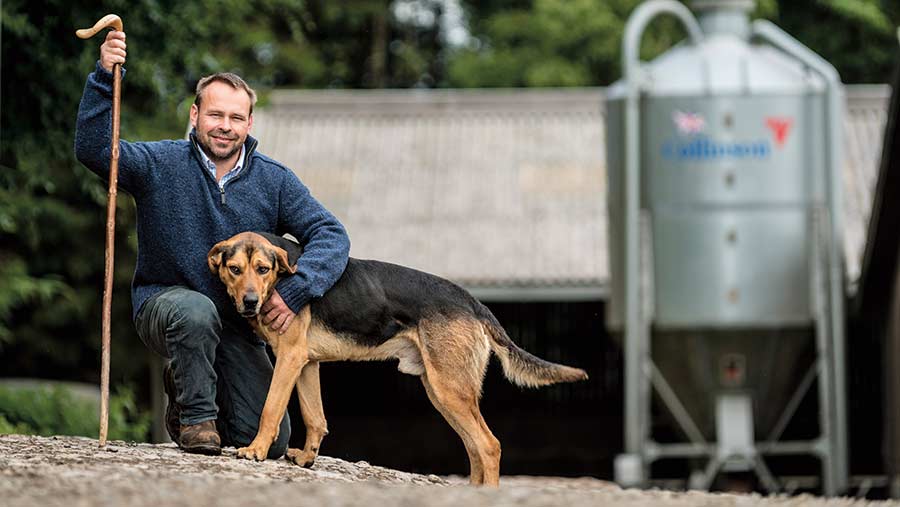Farmer Focus: Cottage conversion should increase resilience
 © Jim Varney
© Jim Varney There were some very exciting developments in 2017, of which the most notable was the new egg production unit. However, generally it was a year to put behind us and we are hoping for a more positive 2018.
Our Brexit-proofing plans continue, with planning having gone in to convert an old granary into a holiday cottage.
We are planning further diversification projects to make the business more robust and resilient in the face of dwindling and/or retargeted support from the government.
I also plan to put up a couple of new buildings this year, finances permitting; a new muck store and a general-purpose building for storage.
See also: Dos and don’ts for starting a diversification
The tups are now off and ewes are being cleared from lambing fields to give them 90 days rest before our outdoor lambing towards the end of April.
Some fields will be sacrificed and the ewes will be fed ad-lib clover silage. The ideal is to move all stock by 2 January to the land of growing grass for three months and return healthy and well fed, but sadly the reality is very different.
Fat lambs are being finished on brassicas at present, and any remaining after this month will be housed.
Test and vaccines
Cows are due to have a Johne’s test, flukicide and their clostridial vaccine booster. Calves only need their two doses of clostridial vaccine.
Fat cattle are being drawn this week, which will make space at the finishing farm for the cull cows. The routine jobs of feeding, bedding and mucking out the fronts of cattle sheds continue unabated.
Meanwhile, the hens are doing what they do best – laying eggs.
The Worshipful Company of Farmers Challenge of Rural Leadership 2017 first annual reunion is coming up, which I am really looking forward to. It will be good to catch up with a great group of friends.
Simon Bainbridge farms a 650ha upland organic farm with 160 suckler cows, 1,500 breeding ewes and 12,000 organic laying hens with his wife, Claire, and his parents. Healthy, maternal livestock and quality feed is a priority.
